第14章 Types Of The Population (6)
John Bartram, who was the first botanist to describe the plants of the New World and who explored the whole country from the Great Lakes to Florida, was a Pennsylvania Quaker of colonial times, farmer born and bred.Thomas Godfrey, also a colonial Pennsylvanian, was rewarded by the Royal Society of England for an improvement which he made in the quadrant.Peter Collinson of England, a famous naturalist and antiquarian of early times, was a Quaker.In modern times John Dalton, the discoverer of the atomic theory of colorblindness, was born of Quaker parents, and Edward Cope, of a well-known Philadelphia Quaker family, became one of the most eminent naturalists and paleontologists of the nineteenth century, and unaided discovered over a third of the three thousand extinct species of vertebrates recognized by men of science.In the field of education, Lindley Murray, the grammarian of a hundred years ago, was a Quaker.Ezra Cornell, a Quaker, founded the great university in New York which bears his name; and Johns Hopkins, also a Quaker, founded the university of that name in Baltimore.
Pennsylvania deserves the credit of turning these early scientific pursuits to popular uses.The first American professorship of botany and natural history was established in Philadelphia College, now the University of Pennsylvania.The first American book on a medical subject was written in Philadelphia by Thomas Cadwalader in 1740; the first American hospital was established there in 1751; and the first systematic instruction in medicine.Since then Philadelphia has produced a long line of physicians and surgeons of national and European reputation.For half a century after the Revolution the city was the center of medical education for the country and it still retains a large part of that preeminence.The Academy of Natural Sciences founded in Philadelphia in 1812 by two inconspicuous young men, an apothecary and a dentist, soon became by the spontaneous support of the community a distinguished institution.
It sent out two Arctic expeditions, that of Kane and that of Hayes, and has included among its members the most prominent men of science in America.It is now the oldest as well as the most complete institution of its kind in the country.The Franklin Institute, founded in Philadelphia in 1824, was the result of a similar scientific interest.It was the first institution of applied science and the mechanic arts in America.Descriptions of the first 2900 patents issued by the United States Government are to be found only on the pages of its Journal, which is still an authoritative annual record.
Apart from their scientific attainments, one of the most interesting facts about the Quakers is the large proportion of them who have reached eminence, often in occupations which are supposed to be somewhat inconsistent with Quaker doctrine.
General Greene, the most capable American officer of the Revolution, after Washington.was a Rhode Island Quaker.General Mifflin of the Revolution was a Pennsylvania Quaker.General Jacob Brown, a Bucks County Pennsylvania Quaker, reorganized the army in the War of 1819.and restored it to its former efficiency.In the long list of Quakers eminent in all walks of life, not only in Pennsylvania but elsewhere, are to be found John Bright, a lover of peace and human liberty through a long and eminent career in British politics; John Dickinson of Philadelphia, who wrote the famous Farmer's Letters so signally useful in the American Revolution; Whittier, the American poet, a Quaker born in Massachusetts of a family converted from Puritanism when the Quakers invaded Boston in the seventeenth century; and Benjamin West, a Pennsylvania Quaker of colonial times, an artist of permanent eminence, one of the founders of the Royal Academy in England and its president in succession to Sir Joshua Reynolds.
Wherever Quakers are found they are the useful and steady citizens.Their eminence seems out of all proportion to their comparatively small numbers.It has often been asked why this height of attainment should occur among a people of such narrow religious discipline.But were the Quakers really narrow, or were they any more narrow than other rigorously self-disciplined people: Spartans, Puritans, soldiers whose discipline enables them to achieve great results? All discipline is in one sense narrow.
Quaker quietude and retirement probably conserved mental energy instead of dissipating it.In an age of superstition and irrational religion, their minds were free and unhampered, and it was the dominant rational tone of their thought that enabled science to flourish in Pennsylvania.